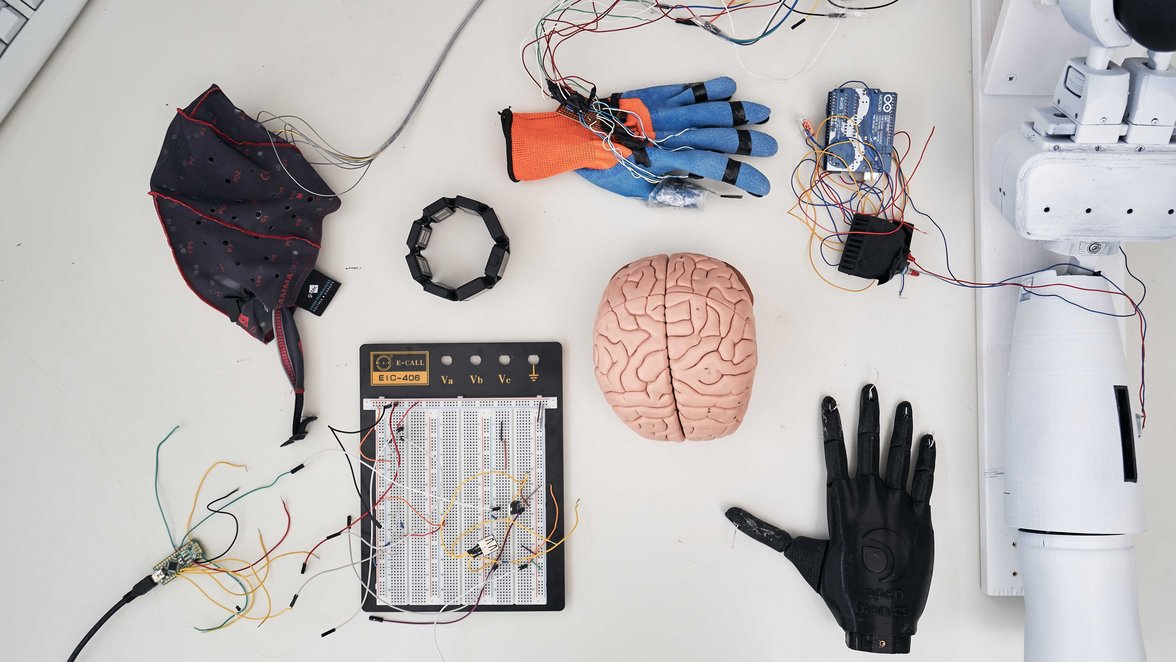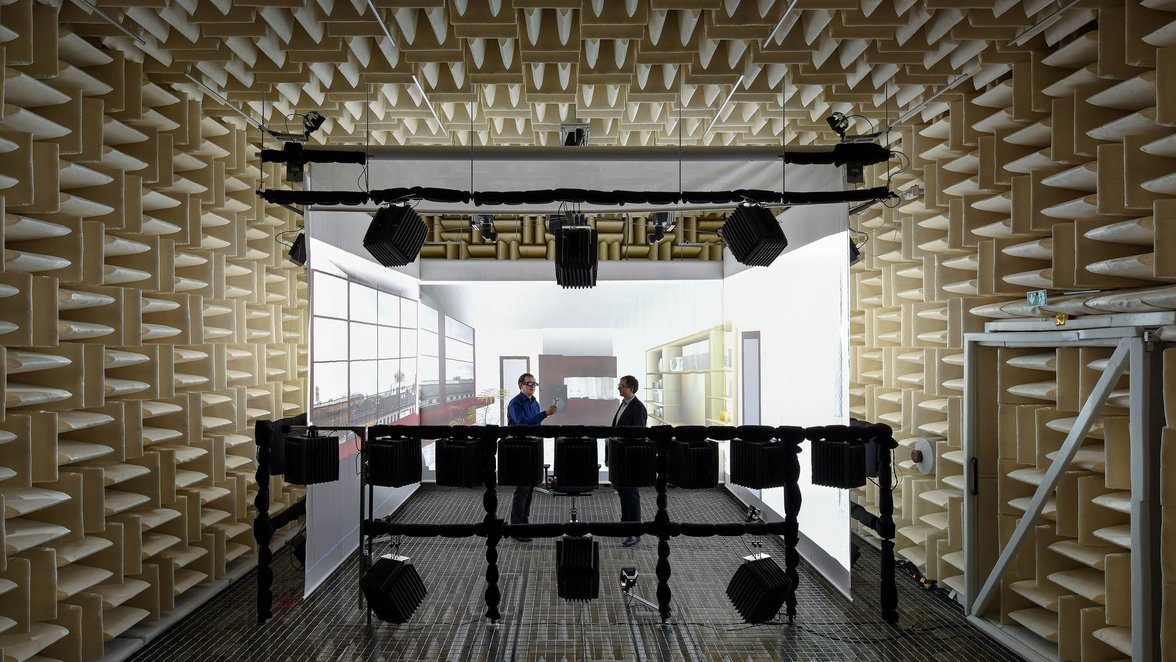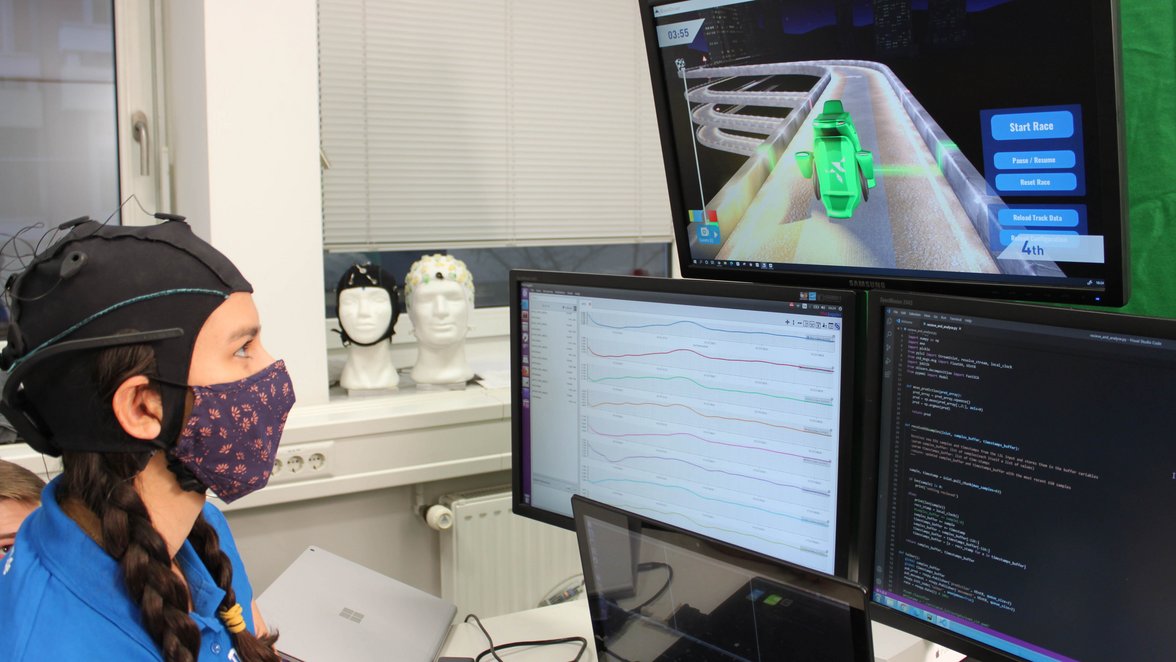The convergence between engineering and neurobiology brings about new discoveries in the brain, as well as innovations for future neuroprothetics and brain-technologies-interfaces. In addition, applying knowledge from the neuro world will be exploited to investigate design methods and architectures for improving technical systems out of the neuro application domains. As an interdisciplinary research area, Neuro-Engineering brings new capabilities to the growing research community at TUM, with state-of-the-art computational and fabrication facilities for developing novel technologies that will benefit a wide range of societal needs, such as health care and active aging.
Mission & Goals
The key question of neuro-engineering is how brains react to sensory stimuli, represent them abstractly as "experiences" and generate behavior from them. The core task is the deep understanding of neuronal information processing from sensory inputs to generated behavior and its implementation in technical systems. To solve this, we combine findings from medical research, e.g. on neuromuscular rehabilitation or active prostheses, with research on technical systems, in which the principles of neural information processing are already being successfully applied and which have already made great progress, for example through massive parallel information processing with distributed local memory. Neuro-Engineering covers a multidisciplinary research field at the interface between neuroscience and application-oriented technology and also cooperates with biologists, psychologists and physicians, both within TUM and with external research institutions. Neuro-Engineering covers research on neuronal information processing in a technical and medical context in breadth and depth and is therefore particularly attractive for students who are characterized by an interdisciplinary interest in information processing and physical, chemical, mathematical, biological aspects and such contribute to the engineering field.
Core Competencies
- Neuro-Medical electronics
- Neuro-Sensory systems and information processing in visual, auditory and haptic domains
- Closed loop Neural Perception-Cognition-Action Systems
- Bio-sensors
- Brain-Machine and Brain-Computer Interfaces
- Neuro-based electronics
- Neuronal data processing
- Self-organizing multi-core processors
Martin Buss, Prof. Dr.
Timo Grimmer, Apl. Prof. Dr.med.
Katrin Koch, Dr.med.
Harald Luksch, Prof. Dr. rer. nat.
Ruben Portugues Peters, Prof. Dr.
Research
- Neuronal circuits and information processing at the systemic level for technical implementation (such as robotics) and medical settings (such as prosthesis, BMI/BCI)
- (Neural) Systems-on-chip
- Bio-Sensors
- Neuro-Rehabilitation
- Neural computation
- Autonomic and organic computing
Projects
- TUM Innovation Network Exoskeleton and Wearables Enhanced Prevention and Treatment (eXprt), Prof. Cheng, Prof. Franklin
- TUM Innovation Network for Neurotechnology in Mental Health (Neurotech), Prof. Jacob, Prof. Ploner, Prof. Wollfrum, Prof. Gjorgjieva
EU-funded projects:
- ERC Advanced Grant STROLL, Prof. Cheng
- ERC Starting Grant NeuroDevo, Prof. Gjorgijeva
- ERC Starting Grant MEMCIRCUIT, Prof. Jacob
- ERC Advanced Grant M-Runners, Prof. Albu-Schäffer
- ERC Consolidator Grant EMcapsulins, Prof. Westmeyer
- Sonderforschungsbereich 1330 Hörakustik, Prof. Seeber, Subproject Auralization
- Wireless “Nanoelectrodes” as a Minimally Invasive Alternative to Conventional Deep Brain Stimulation gefördert von der Michael J. Fox Foundation, Prof. Kozielski
- Computational Models of Multisensory Integration by Upper Limb in Humanoids and Amputees (COMMI), gefördert vom NST/BMBF, Prof. Cheng
- DFG Projekt FoldRob, Prof. Lüth
- DFG Projekt The encoding of sensory information and expectations in the cerebral processing of pain, Prof. Ploner
- DFG Projekt NISED, Prof. Wolfrum



